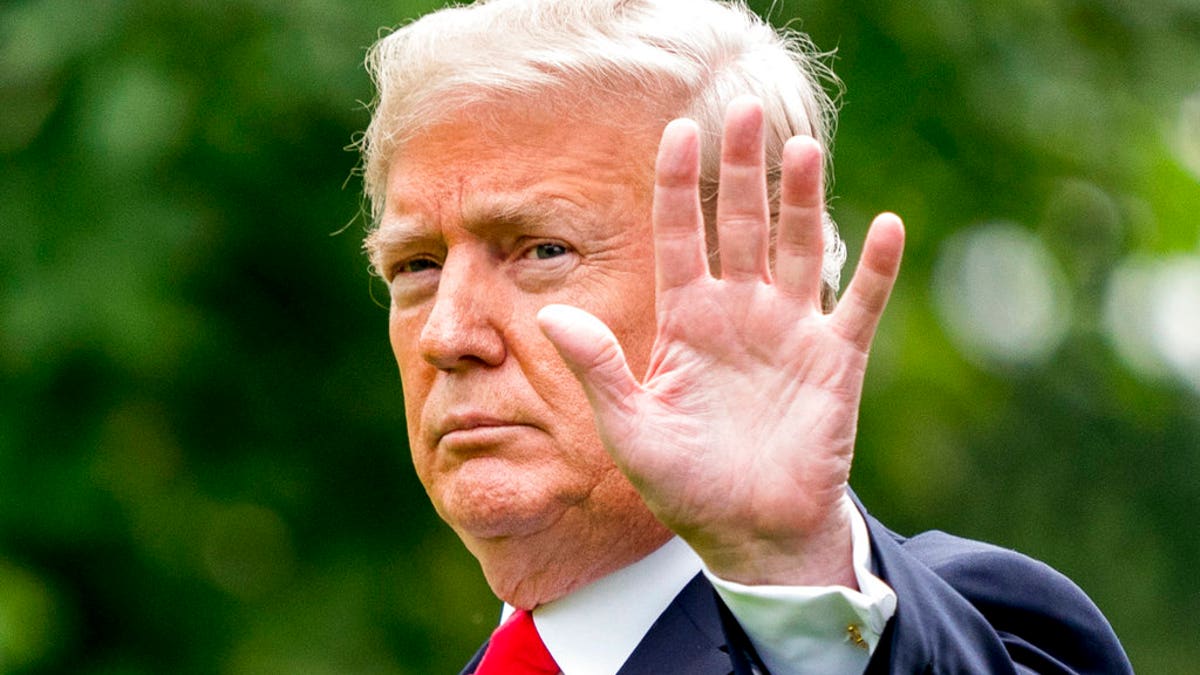
President Trump, preparing to board Marine One last month. His criticisms of "fake news" are spurring a response from some news media outlets. (AP Photo/Andrew Harnik)
President Trump announced Thursday that he was canceling a pay raise due to most civilian federal employees in January, citing budgetary reasons.
In a letter to congressional leaders, the president wrote that locality pay increases would cost $25 billion. Those increases would come on top of a 2.1 percent across-the-board increase for most civilian employees.
"We must maintain efforts to put our Nation on a fiscally sustainable course, and Federal agency budgets cannot sustain such increases," Trump wrote before announcing that for 2019, "both across-the-board pay increases and locality pay increases will be set at zero."
"These alternative pay plan decisions will not materially affect our ability to attract and retain a well‑qualified Federal workforce," Trump's letter adds.
The Democratic National Committee described Trump's letter as "yet another slap in the face to American workers" by the president, while Sen. Mark Warner, D-Va., called it "the latest attack in the Trump Administration’s war on federal employees.
"The President and his party, which controls both houses of Congress, have had every chance over the last 18 months to get serious about tackling our fiscal challenges," Warner said in a statement. "Instead, the President ballooned the deficit by trillions of dollars with a tax giveaway primarily benefitting [sic] big business and the wealthiest Americans. I can think of nothing more hypocritical or disingenuous than to turn around and throw hardworking federal employees under the bus on the pretext of fiscal responsibility."
Under the law, the 2.1 percent raise takes effect automatically unless the president and Congress act to change it. Congress is currently debating a proposal for a slightly lower, 1.9 percent across-the-board raise to be included in a government funding bill that would require Trump's signature to keep most government functions operating past September.
Unions representing the 2 million-member federal workforce urged Congress to pass the 1.9 percent pay raise.
"President Trump's plan to freeze wages for these patriotic workers next year ignores the fact that they are worse off today financially than they were at the start of the decade," said J. David Cox Sr., president of the American Federation of Government Employees, which represents some 700,000 federal workers.
"They have already endured years of little to no increases and their paychecks cannot stretch any further as education, health care costs, gas and other goods continue to get more expensive," added Tim Reardon, national president of the National Treasury Employees Union.
Cox said federal worker pay and benefits have been cut by more than $200 billion since 2011, and workers are currently earning 5 percent less than they did at the start of the decade.
In July, the Trump administration sharply revised upward its deficit estimates compared to the estimates in the budget proposal it sent Congress in February. The worsening deficit reflects the impact of the $1.5 trillion, 10-year tax cut, as well as increased spending for the military and domestic programs that Congress approved earlier this year.
The administration's July budget update projected a deficit of $890 million for the fiscal year that ends Sept. 30, up from the February estimate of $873 billion. The $890 billion deficit projection represents a 34 percent increase from the $666 billion deficit the government recorded in 2017.
For 2019, the administration is projecting the deficit will once again top $1 trillion and stay at that level for the next three years.
The only other period when the federal government ran deficits above $1 trillion was the four years from 2009 through 2012, when the government used tax cuts and increased spending to combat the 2008 fiscal crisis and the worst economic downturn since the 1930s.
Fox News' Chad Pergram, Jason Donner and The Associated Press contributed to this report.











































